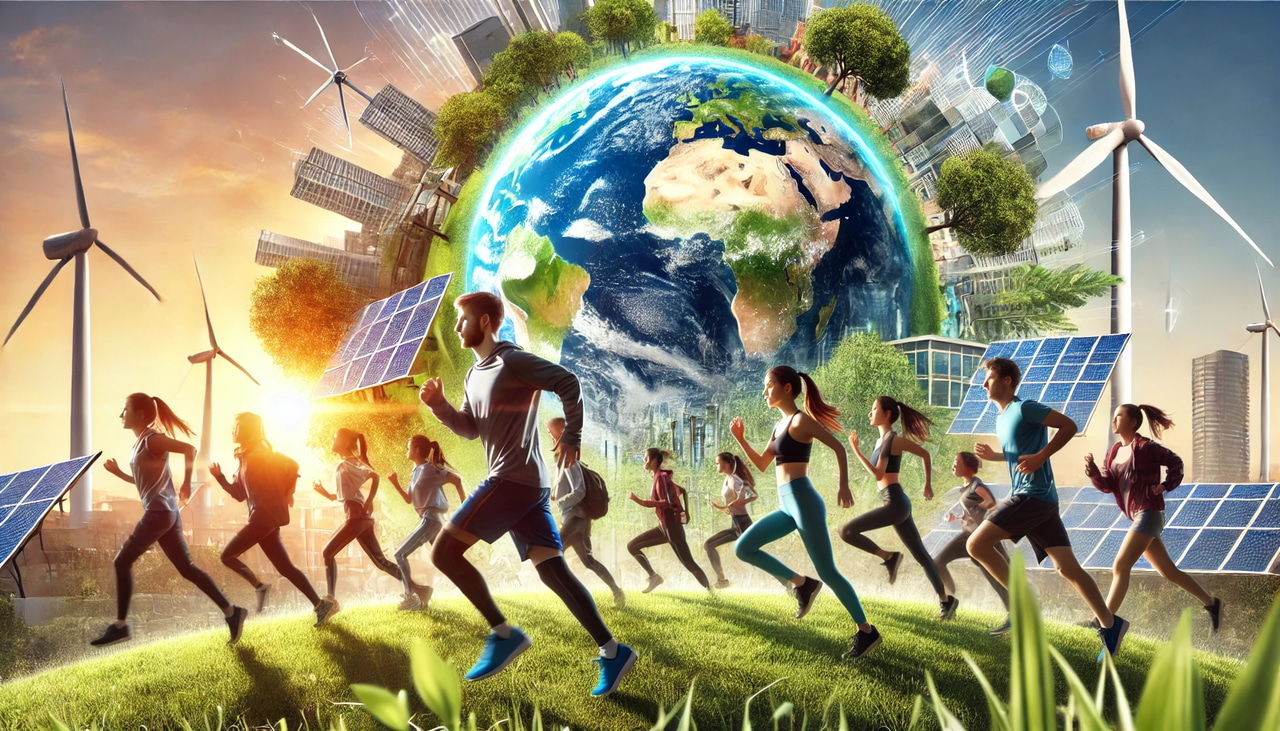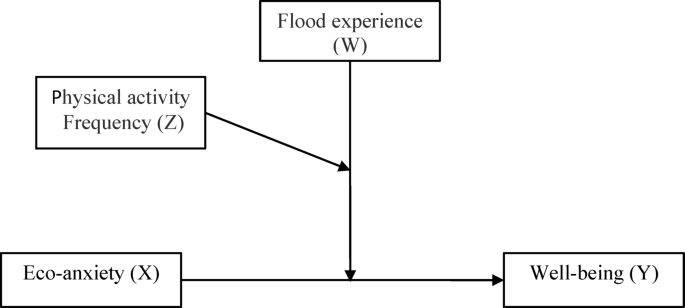How Physical Activity Can Protect Young Minds From Climate Anxiety
Published in Materials, Sustainability, and Behavioural Sciences & Psychology

Drawing on data from regions heavily affected by flooding in Greece during storm Daniel, we examined the relationships between flood exposure, eco-anxiety, physical activity, and psychological well-being. The results suggest that children and adolescents who engage more frequently in physical activity per week tend to report higher levels of psychological well-being, even when they have experienced eco-anxiety. In other words, regular physical activity appears to mitigate the negative emotional effects of flood-related experiences and eco-anxiety. The findings above are consistent with 2020 WHO PA guidelines for children and adolescents, which recommend an average of at least 60 min of moderate-to-vigorous PA per day (mostly aerobic).
Our work adds to the growing recognition that addressing the climate crisis requires more than system-level/community-wide adaptations such as policies and infrastructure , it also demands attention to human behavior, resilience, and adaptation. Encouraging active lifestyles in youth may thus serve as a simple but powerful strategy to enhance both psychological and physiological resilience and environmental sustainability.
Future research should continue to explore how physical activity can help young people cope with eco-anxiety and strengthen their connection to the environment. Schools, communities, and policymakers can play a crucial role in designing programs that integrate physical activity with environmental education, creating a healthier and more sustainable future for all. Beyond mental health, the papers highlights the sustainability benefits of physical activity. The authors suggest that choosing active modes of transport like walking, cycling and using the stairs instead of motorized options can reduce carbon emissions and energy consumption. This highlights how movement can simultaneously support personal well-being and planetary health. This paper is part of ENLITE project which is funded through the Greek National Recovery and Resilience Plan “Greece 2.0”, under the European Union’s NextGenerationEU initiative. ENLITE aims to strengthen students’ environmental literacy through Physical Education and activity-based actions focused on climate change (e.g., renewable energy, energy-saving behaviors through PA, sustainable eating, PA in extreme heat or cold, etc. ).
Physical activity seems to offer a powerful form of resilience, says Dr. Nikos Comoutos, Professor of Psychology of Sport and Physical Education at the University of Thessaly and lead investigator of the ENLITE project. The moto of ENLITE is “Enhancing health and the environment through sports and physical activities".
Read the full paper in https://rdcu.be/eOooQ
Follow the Topic
-
Scientific Reports

An open access journal publishing original research from across all areas of the natural sciences, psychology, medicine and engineering.
What are SDG Topics?
An introduction to Sustainable Development Goals (SDGs) Topics and their role in highlighting sustainable development research.
Continue reading announcementRelated Collections
With Collections, you can get published faster and increase your visibility.
Reproductive Health
Publishing Model: Hybrid
Deadline: Mar 30, 2026
Women’s Health
Publishing Model: Open Access
Deadline: Feb 28, 2026



Please sign in or register for FREE
If you are a registered user on Research Communities by Springer Nature, please sign in